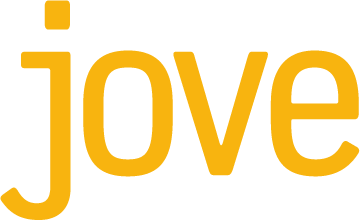A gatekeeper speaks on marketing
/Several years ago, we spoke at length with a gatekeeper at a state pension fund on a range of marketing topics.
He was a prototypical gatekeeper—the people who can give or deny asset managers the opportunity to pitch their institution. He was in his 30s and planned to be in his position for three to five years, after which he’d advance to a more senior institutional role or move to the investment management side.
Gatekeepers tend to be young-ish, smart, ambitious, overworked, and over-pitched. Their profile hasn’t changed much since then. So while the details below may be slightly dated, the message is as valid as ever.
On pitching, decks, and introductions:
We’re inundated with decks from managers wanting us to see their process. They face an uphill battle. Put yourself in our shoes: most pension funds have one person in the gatekeeping role who’ll spend five to ten minutes thumbing through your deck. If you give us one reason to say “no”—for example, an unclear value proposition—we’ll move on.
Crisp, short decks of ten to 20 pages are easier for us to digest. We’re not going to go into that much detail on a first look. We’re all understaffed. If you don’t make your case in the first few pages, we won’t spend any more time flipping through the rest.
We don’t need so much detail. We don’t care what you look like, so skip the photos. One page on your team, one-line bios. Anywhere you can save paper or space, I’d encourage it. Conceptual graphics and charts will suffice.
The reaction you want from us is, “I’d like to hear more about this.” Just enough to spur a personal conversation of five to ten minutes, which is all you can ask for. That will lead to a longer conversation in a visit or phone call. At that point, we may want an educational session to evaluate it.
Their expectations of value-added services:
We expect to get more than just asset management from the firms we have strong relationships with. Our asset management partners are very proactive in pushing out their intellectual capital. Many managers can do that—they have the resume and the credibility out of the box, and can do that in a creative, constructive fashion for their clients.
For example, Bridgewater sends us its daily observations, emerging market currencies to pension underfunding status to what are rates doing in Spain. They take what they’re already doing anyway and put it in a professional format.
If we have a special request—like, do you have any thoughts on this space in the markets, do you have any insights on this market strategy—they’ll have a person work on it, send us a spreadsheet, and take us through it.
Other shops may provide a monthly commentary. For example, some firms have experience in emerging markets. We’re not in the weeds there, so their update will help us.
These are all relatively straightforward, natural things managers can do, driven off their day-to-day portfolio management.
On filling gaps in their expertise:
Every institution has areas of weakness that managers can help them with.
For example, we don’t have expertise on tactical, dynamic asset allocation, or the tools for it. We’re looking for an advanced approach, not just an efficient frontier model but risk premia, and then helping us apply it to our portfolios. I have yet to see a good offering from any firm that would help us with this, but I believe it’s out there.
For carve-outs and other small managers:
Some managers—especially new, smaller firms—could be more sophisticated in their selling and retention efforts. We have turnover on a regular basis, and when we do, you’ll have to resell yourself. To come back a year from now, after I’m gone, and tell the new gatekeeper that I was the reason we’re doing business with you.
It’s hard, but that’s how it’s done. Relationship managers call, introduce themselves, and tactfully say, “we’re adding value for you—please don’t terminate us just because you don’t know who we are.” The good asset managers are very skilled at this.


